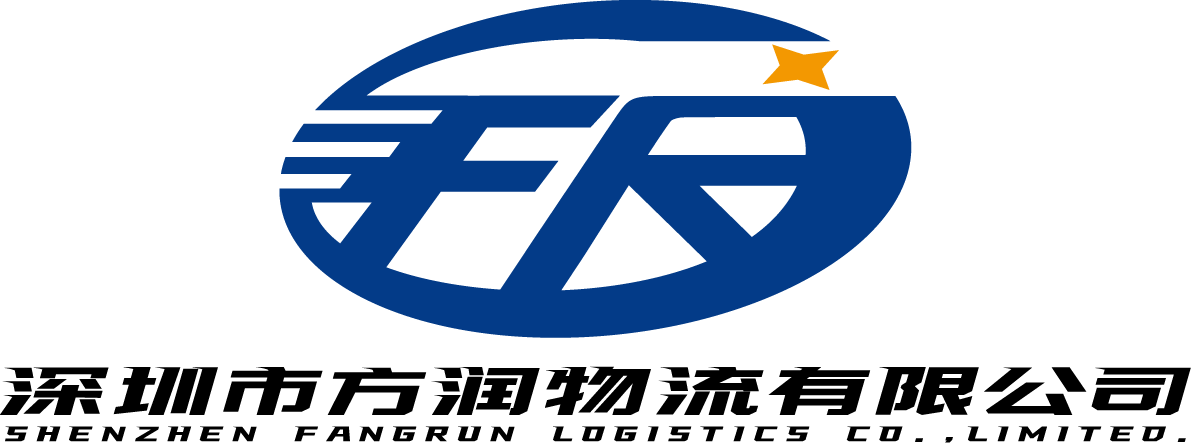The concept of supply chain sustainability has become paramount for businesses seeking long-term success. This article explores the importance of sustainable supply chains, the challenges they face, and practical strategies to embrace and implement sustainable practices.
Supply chain sustainability refers to the integration of ethical, environmental, and social considerations into the entire supply chain process.
It’s not merely a buzzword but a commitment that resonates with the values of modern consumers and contributes to the overall well-being of our planet.
Why Supply Chain Sustainability Matters
Environmental Impact: One of the primary reasons supply chain logistics management matters is its significant impact on the environment. From raw material extraction to product disposal, every step in the supply chain has ecological consequences. Sustainable practices aim to reduce this impact and promote environmental conservation.
Social Responsibility: Beyond the ecological footprint, supply chain sustainability upholds social responsibility. It involves fair labor practices, safe working conditions, and fostering positive relationships with communities impacted by supply chain activities. This commitment enhances a company’s reputation and fosters trust among consumers.
Economic Benefits: Contrary to the misconception that sustainability comes at a high cost, businesses embracing supply chain sustainability often experience long-term economic benefits. Companies enhance their overall efficiency and competitiveness by optimizing resources, reducing waste, and fostering ethical practices.
Key Principles of Supply Chain Sustainability
Transparency: Transparency is a cornerstone of supply chain sustainability. Companies committed to sustainability openly communicate their practices, allowing consumers and stakeholders to make informed choices. This transparency also encourages accountability within the industry.
Ethical Sourcing: Ethical sourcing involves ensuring that raw materials are obtained through fair trade practices, avoiding exploitative labor conditions and environmental degradation. logistics and supply chain management prioritize working with suppliers who share a commitment to ethical sourcing.
Resource Efficiency: Resource efficiency is about minimizing waste and optimizing the use of resources throughout the supply chain. This includes energy consumption, water usage, and the responsible management of raw materials. Sustainable supply chains strive for maximum efficiency.
Challenges in Achieving Supply Chain Sustainability
Complex Supply Chains: For many businesses, supply chains are intricate webs that span across the globe. Achieving sustainability in such complex networks poses challenges related to traceability, accountability, and maintaining ethical standards throughout the chain.
Resistance to Change: Implementing sustainable practices often faces resistance from within organizations. Resistance can come from various levels, including management, employees, and even suppliers. Overcoming this resistance requires effective communication and a commitment to change.
Balancing Costs: While the long-term economic benefits of sustainability are evident, businesses may encounter initial costs when transitioning to sustainable supply chains. Achieving a balance between sustainability and cost-effectiveness is a delicate challenge for many organizations.
Successful Strategies for Sustainable Supply Chains
Collaboration with Suppliers: Building strong partnerships with suppliers is crucial for sustainable supply chains. Collaborative efforts can lead to shared goals, such as reducing environmental impact and improving labor conditions. Open communication ensures alignment throughout the supply chain.
Technology Integration: Embracing technology, such as blockchain for transparency and IoT for real-time monitoring, enhances the effectiveness of sustainable supply chains. These technologies provide visibility into the entire process, allowing for better decision-making and accountability.
Continuous Improvement: Sustainable supply chains are dynamic, and continuously evolving to meet new challenges. Companies committed to sustainability embrace a culture of continuous improvement, seeking innovative solutions and staying adaptable in the face of change.
Case Studies of Companies Embracing Supply Chain Sustainability
Innovations in Packaging: Company A revolutionized its supply chain sustainability by introducing eco-friendly packaging solutions. This not only reduced the environmental impact but also resonated positively with environmentally conscious consumers, boosting brand loyalty.
Socially Responsible Sourcing: Company B prioritized socially responsible sourcing by ensuring fair labor practices and supporting communities impacted by its supply chain activities. This commitment not only enhanced the company’s reputation but also attracted socially conscious consumers.
Technology’s Role in Enhancing Supply Chain Sustainability
Blockchain for Transparency: Blockchain technology ensures transparency by creating an immutable record of every transaction within the supply chain. This reduces the risk of unethical practices and enables consumers to trace the origins of products.
LOT for Real-Time Monitoring: The Internet of Things (IoT) allows real-time monitoring of supply chain processes. From tracking the conditions of perishable goods to monitoring energy consumption, IoT enhances visibility and accountability.
Data Analytics for Decision-Making: Data analytics provides valuable insights for decision-making. Analyzing data related to resource usage, waste generation, and efficiency allows companies to make informed choices that align with sustainability goals.
Benefits of Sustainable Supply Chains
Brand Reputation: Companies with sustainable supply chains enjoy a positive brand reputation. Consumers increasingly prefer products from businesses committed to ethical and eco-friendly practices, leading to increased brand loyalty.
Risk Mitigation: Sustainable supply chains are often more resilient in the face of disruptions. By diversifying suppliers, optimizing processes, and embracing ethical practices, businesses can mitigate risks and ensure continuity.
Regulatory Compliance: As governments worldwide tighten regulations around environmental and social practices, sustainable supply chains position companies to comply with current and future standards, avoiding legal issues and penalties.
How Businesses Can Start Their Journey Towards Sustainability
Conducting a Sustainability Assessment: The first step towards sustainability is conducting a thorough assessment of current practices. This involves evaluating environmental impact, labor conditions, and overall ethical standards within the supply chain.
Setting Achievable Goals: Setting clear and achievable sustainability goals is essential for a successful transition. These goals may include reducing carbon emissions, improving waste management, or implementing ethical sourcing practices.
Employee Training and Engagement: The active involvement of employees is crucial for the success of sustainable supply chain initiatives. Providing training programs that emphasize the importance of sustainability and engaging employees in the process fosters a culture of responsibility.
Measuring and Reporting Sustainable Practices
Key Performance Indicators (KPIs): Identifying and monitoring key performance indicators related to sustainability is essential. These KPIs may include carbon footprint, water usage, waste reduction, and social impact metrics.
Sustainability Reporting Standards: Following recognized sustainability reporting standards, such as the Global Reporting Initiative (GRI), ensures consistency and transparency in reporting practices. Companies can communicate their sustainability efforts effectively to stakeholders.
Third-Party Certifications: Seeking third-party certifications, such as ISO 14001 for environmental management or Fair Trade certification, provides external validation of sustainable practices. Certifications enhance credibility and trust among consumers.
Global Initiatives Supporting Supply Chain Sustainability
United Nations Sustainable Development Goals: Aligning with the United Nations Sustainable Development Goals (SDGs) provides a framework for businesses to contribute to global sustainability objectives. Companies can choose specific goals that resonate with their values and operations.
The Paris Agreement: The Paris Agreement, focusing on climate action, encourages businesses to reduce their carbon footprint and adopt practices that contribute to a more sustainable and climate-resilient future.
Industry-Specific Initiatives: Many industries have their sustainability initiatives and certifications. Businesses should actively participate in these industry-specific programs to stay informed and aligned with sector-wide sustainability goals.
Sustainable Supply Chains in E-Commerce
Last-Mile Sustainability: E-commerce presents unique challenges for sustainability, especially in the last-mile delivery process. Companies are exploring innovations such as electric vehicles, sustainable packaging, and local pickup points to address these challenges.
Packaging Innovations: E-commerce companies are investing in sustainable packaging solutions to reduce waste and minimize the environmental impact of packaging materials. Biodegradable and recyclable materials are gaining popularity.
Consumer Awareness: Educating consumers about the environmental impact of their choices is crucial. E-commerce businesses are incorporating sustainability information into product descriptions, encouraging consumers to make eco-conscious decisions.
The Role of Consumers in Driving Sustainable Practices
Demand for Eco-Friendly Products: Consumers have the power to drive sustainable practices by demanding eco-friendly products. Companies respond to consumer preferences by prioritizing sustainable sourcing, production, and distribution.
Influence on Business Practices: Consumer choices influence business practices. As more consumers choose sustainability, businesses must adopt environmentally friendly and socially responsible practices to meet market demands.
Government Regulations and Incentives
Incentives for Sustainable Practices: Governments worldwide are offering incentives to encourage businesses to adopt sustainable practices. These incentives may include tax breaks, subsidies for eco-friendly technologies, and preferential treatment in government procurement.
Penalties for Non-Compliance: Governments are imposing penalties for non-compliance with environmental and social regulations. Sustainable supply chains position businesses to avoid legal consequences and contribute to overall regulatory compliance.
Future Regulatory Trends: Anticipating future regulatory trends is essential for businesses. Governments are likely to tighten regulations around sustainability, and businesses should stay informed to adapt their practices accordingly.
Conclusion
In conclusion, supply chain sustainability is not just a responsibility but a strategic imperative for businesses in the 21st century. Embracing sustainable practices not only aligns with global values but also enhances brand reputation, mitigates risks, and ensures long-term success. As we move forward, the collective effort of businesses, consumers, and governments is vital for creating a sustainable future for all.
Frequently Asked Questions (FAQs)
How does supply chain sustainability benefit businesses?
Supply chain sustainability benefits businesses by enhancing brand reputation, mitigating risks, and ensuring regulatory compliance, leading to long-term success.
What are the key principles of supply chain sustainability?
Key principles include transparency, ethical sourcing, and resource efficiency, ensuring ethical, environmental, and social considerations are integrated into the supply chain.
How can companies measure their sustainability efforts?
Companies can measure sustainability through key performance indicators (KPIs), adherence to sustainability reporting standards, and obtaining third-party certifications.
What role do consumers play in driving sustainable practices?
Consumers drive sustainability by demanding eco-friendly products, influencing business practices, and encouraging companies to adopt environmentally friendly and socially responsible initiatives.
Are there global initiatives supporting supply chain sustainability?
Yes, initiatives such as the United Nations Sustainable Development Goals, The Paris Agreement, and industry-specific programs provide frameworks for businesses to contribute to global sustainability objectives.








